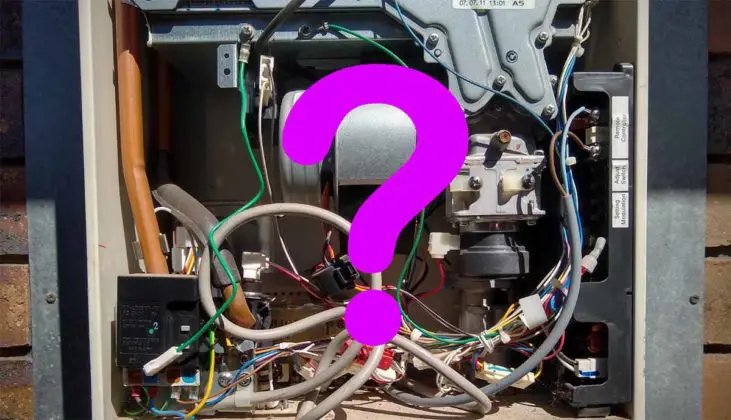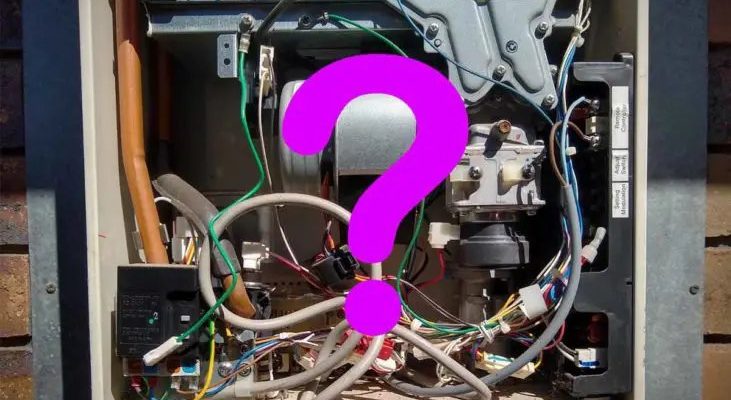
The F1 error code is a specific way your Bosch water heater is trying to communicate with you. Imagine it as your water heater waving a red flag. It happens when there’s a problem with the water flow in the system, much like a roadblock on your highway to hot water. Ignoring it is a bit like driving your car with the “check engine” light on. You might get away with it for a while, but eventually, you’ll find yourself stuck on the side of the road—or in this case, left with cold showers. Let’s dive a bit deeper into what this means and what you can do about it.
Understanding the Bosch Water Heater Error Code F1
First off, it’s crucial to understand what the F1 error code signifies. For Bosch water heaters, this code is often related to a lack of water flow. Picture it this way: the water heater is designed to heat water as it flows through the system. If there’s no water or insufficient water flow, the system can’t function properly, just like a coffee maker without coffee beans can’t brew a pot of coffee.
Common causes of the F1 error might include a blockage in the water line or a problem with the water inlet valve. It’s like having a kink in your garden hose—no matter how high you turn up the faucet, the water just won’t come through. Fixing this problem early can prevent bigger issues down the line, like overheating and potential damage to the heater itself.
What can you do if you see this error? Start by checking the water supply. Make sure the water valve is fully open and that there’s no visible blockage. A simple visual inspection can sometimes reveal the problem, much like spotting a pebble that’s blocking a path. If everything seems normal but the error persists, it might be time to call in a professional, akin to calling a mechanic when your car problem goes beyond your skills.
The Risks of Ignoring Error Code F1
Now, let’s talk about the risks of ignoring this pesky code. Imagine continuing to drive with your car’s “check engine” light glowing ominously. Sooner or later, something’s bound to give. With a Bosch water heater, ignoring the F1 error can lead to a host of problems, not just the inconvenience of cold water. Over time, the strain on the system from a lack of proper flow can cause internal parts to wear out quicker than they should.
One of the main risks is overheating. When water isn’t flowing correctly, the heater can overheat, leading to increased wear and tear on the internal components. It’s like running a marathon without enough water breaks. Your body (or in this case, the water heater) needs a proper flow to keep things balanced and cool. Continued overheating can eventually lead to system failure, which is often a costly repair—or worse, a full replacement.
Moreover, a consistent lack of water flow might lead to scale buildup or corrosion within the system. These are long-term issues that can shorten the lifespan of your water heater significantly. So, ignoring the F1 code is like ignoring a toothache—it might seem minor now, but it can lead to root canals (or expensive repairs) if left unchecked.
Steps to Resolve Bosch Error Code F1
If you’re facing an F1 error code, don’t worry—there are actionable steps you can take. Start by checking the water supply to the heater. Ensure all valves are open and water can flow freely. It’s like ensuring your car has enough oil before a long drive. Without the basics, things just don’t work well.
If the water supply is good, inspect the water inlet valve. Over time, these valves can become clogged or faulty, much like a clogged drain. Replacing a faulty valve might be straightforward for some handy individuals, but don’t hesitate to seek professional help if it’s outside your comfort zone. Remember, it’s better to fix a small problem than to wait until it becomes a cascade of bigger issues.
Finally, maintenance is your best friend. Regularly checking your system for build-up or any signs of wear can prevent problems before they start. Think of it as routine check-ups at the doctor—usually less about finding something wrong and more about keeping everything running smoothly.
Prevention Tips and Conclusion
Prevention, as they say, is better than cure. Regular maintenance of your Bosch water heater can go a long way in preventing error codes like F1 from appearing in the first place. Schedule annual check-ups with a certified technician to ensure everything is in tip-top shape. This is akin to having your car serviced regularly to avoid unexpected breakdowns.
Additionally, be mindful of the water quality in your area. Hard water can lead to mineral buildup, affecting the performance of your heater. Installing a water softener might be a wise investment if you live in an area with hard water. It’s like using the right fuel for your car to ensure it runs smoothly.
In summary, while it might be tempting to ignore the error code F1 on your Bosch water heater, doing so is not advisable. By understanding the causes, risks, and resolutions associated with this error, you can ensure a steady flow of hot water and prolong the life of your appliance. Treat your water heater with the care it deserves, and it will return the favor with reliable, hot showers year-round.
